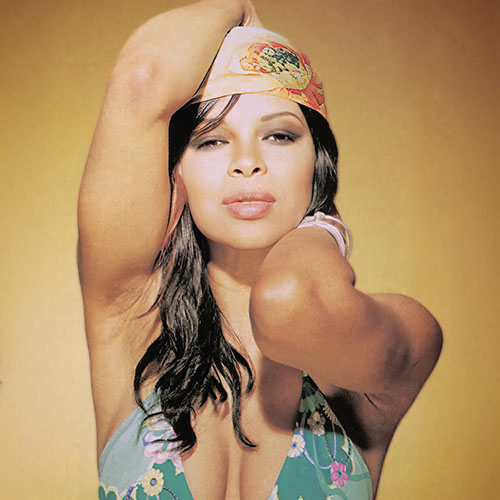This youthful “nation of scolds” wants equal rights for all and free speech — unless you don’t agree with them.
Generation Millennial Torch and Pitchfork
To the millennials who dominate social-media sites, one thing stands between the sad state of the world and utopia for all: your right to hurt their feelings.
Nigger. Faggot. Retard. Three little words that, at present, court huge worlds of trouble.
That trio of firestorm-starters appears here in a periodical expressly forbidden to be viewed by anyone under 18, due to its explicit sexual content. And yet, in our current cultural climate, those three six-letter cluster bombs are likely to be perceived as the “dirtiest” things in this “dirty” magazine — so much so that I, the author, am not entirely confident that they’ll appear uncensored. And I understand why: because even the most daring media outlet has to stay in business.
As we all see regularly, these are the times in which one verboten expression can motivate a frenzied rush to shut you down forever. Where stuffed shirts and bluenoses long ago failed to outlaw erotic writing and nude photography, today’s crusaders pick pressure points that not only make them come off as “accepting” and “compassionate,” but also hip and cool and young and (ironically) “free.” And, wow, do those sales aspects of totalitarianism work.
Welcome to the world where — armed with cell phone cameras, social media, and the irrepressible (and oftentimes idiotic) self-righteousness of youth — everyone’s kid sibling has actively embodied and taken on the duties of Big Brother. Now pick your words carefully and watch your mouth.
Millennials are the first modern generation more interested in being offended than in being offensive. Nowhere among the present zeitgeist of the burgeoning creative class will you find a spirit in keeping with the incendiary literature of Allen Ginsberg, the brilliantly foul music of Frank Zappa, or the savage smart-ass satire of National Lampoon, let alone legitimately outrageous Hollywood concoctions like Blazing Saddles or All in the Family.
To today’s twentysomethings, those watershed artistic moments of youth cultures past (if they bothered to investigate them) would be shouted down and driven out as “hurtful” and “shaming” assaults born of “entitlement” that callously traffic in transgressions against the sacrosanct nobility of history’s “victims.”
Few aspects of any given time and place are more telling than its taboos. Today’s coming-of-age adult generation has never left its parents’ homes, and counts as its greatest art and entertainment kitten videos and superhero adventures. Therefore, it should come as no shock that millennials are obsessed with squealing over the commonly shared cultural playground about the big kids “calling mean names” and “not playing fair.” What is astonishing (and disheartening) is how far they go to make it stop.
To the millennial, “racism,” “homophobia,” and “sexism” (typically put in that order) are humanity’s ultimate unholy violations to be met and purged only with unholy terror. “Privilege” is the new original sin (with “straight white male privilege” trumping all others as an incalculable horror of inborn monstrousness).
If the religious branding of these attitudes comes off as exaggerated, try publicly breaking the millennial-enforced commandment “Thou Shalt Not Be a Meanie.” That directive hovers over every on line interaction, not to mention every dumb joke, angry outburst, and/or any other communication now that anything and everything can and does end up on Facebook and YouTube.
Borrowing legendary Baltimore Sun columnist H. L. Mencken’s definition of puritanism — “the haunting fear that someone, somewhere, might be having a good time”— the act of making sure that no one, anywhere, might be whooping it up in a manner that could “trigger” or “re-traumatize” any of life’s classically downtrodden targets has become the current blood sport of the young. The zeal of this pursuit was summed up in May 2012 by Dorsey Shaw, an editor of the essential millennial website BuzzFeed. After an unremarkable Rush Limbaugh bloviation regarding women and the right to vote (he thought allowing it perhaps had been a mistake), Shaw instructed BuzzFeed readers not to argue against this (or any) idea with which they did not agree. Instead, he demanded, “Grab the pitchforks and torches!”
Up until that moment, the image of “pitchforks and torches” — an allusion to the villagers in Frankenstein cruelly hunting down and killing a monster who threatens and terrifies them simply by being different — had always been used to symbolize small-minded intolerance and ignorant fear. The image still means this, but to a generation that feels pride and power in eliminating word choices from common language and in publicly punishing thought-criminals in order to pre-emptively silence potential future offenders, “pitchforks and torches” are just two more must-have accessories.
Fear is always what motivates the censor and the scold. Power is what keeps him coming back. Let’s go back to “nigger,” “faggot,” and “retard.” In absolutely no context of contemporary discourse are those words acceptable (yeah, yeah, “unless you are one”), even in reference to someone else saying them. Hence, a country full of adults reduced to baby talk to avoid the utterance of the Word That Cannot Be Named — “the N-word.”
The millennial generation really did remove those terms from the lexicon. And the campaign continues. Say good-bye to “thug,” an excellently descriptive term for a brute who reflexively uses violence to get his way, now deemed to be “code” for “the N-word.” What word is next to go? And will your tweet, your home video, your private conversation, be the one that gets the wrecking ball rolling?
Confronting millennials with this notion that they are censors invites blowback about how only the government can truly censor. A maxim cited often by First Amendment defenders is, “The best solution to bad speech is more speech.” Given the never-before-imaginable invasive power of handheld technology, the wicket becomes ever stickier these days as to what exactly constitutes “speech.”
As Lindy West, a verbose columnist for feminist millennial outpost Jezebel.com, wrote in reference to comedian Daniel Tosh making a rape joke: “You can say whatever you want … and the flip side of that … is that audiences get to react to your words however we want.” (The use of “we,” and its italicization, is West’s, spokesmouth of audiences everywhere that she is.) But do you “get to react” however you want? Legally, perhaps. But what about when the grievous offender is a 22-year-old Michigan woman who dressed as a Boston Marathon bombing victim for an office Halloween party?
“For the generation to whom “The Bully” is the first and last (still allowed) word in evil, bullying the bullies is cheered as the best means of making a difference.”
After a picture of her outfit was posted online, her computer was hacked and warriors of virtual virtue flooded the internet with her personal contact numbers, nude pictures, and even the names and addresses of her family members. She received death threats and, as a result of the unwelcome attention, she was fired from her job. BuzzFeed reported these details with drooling glee. One shudders to imagine what might have resulted had she shown up in blackface or in a Washington Redskins jersey.
Compounding the high-tech noxiousness of this mindset is the millennial admiration for the online hacker group Anonymous, and their unprecedented-among-the-young reverence for the good ol’ president of the United States. Any secret organization whose best attempt at a cool name is “Anonymous” deserves to be ignored anyway, but this underground network specializes in shutting down and ultimately shutting up anyone it deems unworthy of sharing the group’s own access to expression. Anonymous typically terrorizes easy-to-loathe bastions of the grotesque, like the “God Hates Fags” Westboro Baptist Church, thereby turning the dominant voices of social media giddy. For this generation to whom “the bully” is the first and last (still allowed) word in evil, bullying the bullies is cheered as the best and, in fact, only means of making a difference.
On occasion — as in an Anonymous hacker leaking indisputable evidence that led to convictions in the nationally notorious 2012 Steubenville, Ohio, rape case — it’s hard not to cheer for what could be termed “righteous vigilantism” (particularly when, earlier this year, the hacker received more jail time than the rapists). But what separates Anonymous from secret-spillers such as Edward Snowden and WikiLeaks’ Julian Assange is not that they seek to expose buried truths, but that, overwhelmingly, they tirelessly labor to bury versions of the truth that rub them the wrong way — by using intimidation to silence the speaker. “Have fun dealing with Anonymous, assholes” became as familiar an online jab at despicable Westboro-types as endless jokes about anal rape in prison are regarding non-thought criminals such as child molesters.
And if you wanted to sell spying, lying, and the end of privacy to an idealistic class of wannabe do-gooders willing to do anything to feel good about themselves, you could hardly concoct a more diabolically appealing package than an African-American community activist turned Leader of the Free World who, by golly, just wants to make sure every poor soul under his loving watch can have access to health care.
The NSA’s horrific spy campaign against private citizens under President Obama has not been protested anywhere in any major millennial outlet because (A) it’s their Good Daddy of Color President doing it, and (B) isn’t that what the internet is for?
The NSA approach and attitude is mirrored in the popular blog PublicShaming.Tumblr.com, which is revered as a mighty totem of millennial morality. Invented by Matt Binder, a 26-year-old New York City radio producer for liberal broadcaster Sam Seder, PublicShaming keeps constant mechanical eyes on Twitter, and then it pulls out and republishes any communication its creator deems improper. Each poster’s personal information, of course, is included, so that the price of impure thoughts and the unapproved sharing of such can be directly hammered home. Binder and his blog are routinely hailed as heroic.
Matt Binder outs the “shameful” the way the NSA tracks “terrorists.” Thus we have the millennial mind-set that flips the essential words of a classic anti authority bumper sticker to create a motto for the new New World Order: “I fear my country, but I love my government.”
Kids today. They know what you’re thinking. Because they’re making sure you don’t think anything else.
To underline the concept behind our decision to republish this 2014 article on the site, we would (perhaps haughtily, as befits us) suggest that we all need to get our news from multiple sources, and we all need to at least hear “the other side’s” point of view. This serves an important purpose if for no other reason than to be able to understand one of the most famous phrases in our world today: “Wow! [That other side/person] is bonkers!” … While the “civility” of the 1950s has changed a lot in contemporary society — basically beginning with the 1960s, by the way — we would not be so short-sighted as to attribute the malaise to a specific age group as the author did here. Just to be perfectly clear.
That said, trying to absorb opposing points of view other than your own really makes for a more peaceful world overall. Also, we really love irony, so we could not miss the fact that all of these cancel-culture complaints were spewing forth before the Presidential election of 2016 had even started.
Here a decade later, a couple of prominent theories exist for why America seems to have simply grown ruder than it used to be. Being surrounded by smart and skilled Millennials around here, for our part we do not blame the devolution so much on age as the fact that we spent an entire Presidential administration with the leader of the free world being an ignorant and offensive bully a great deal of the time. As role models go … well, you get the picture. Clearly half the country does not mind that sort of behaviour, though, so we probably know nothing anyway. As to more erudite reflections on Rudeness Culture, we do like “Psychology Today” as a free reference in these columns, although “The Atlantic” has an excellent article on the topic, should you be willing to risk the free trial route. … Also, “Get off my lawn!”
























